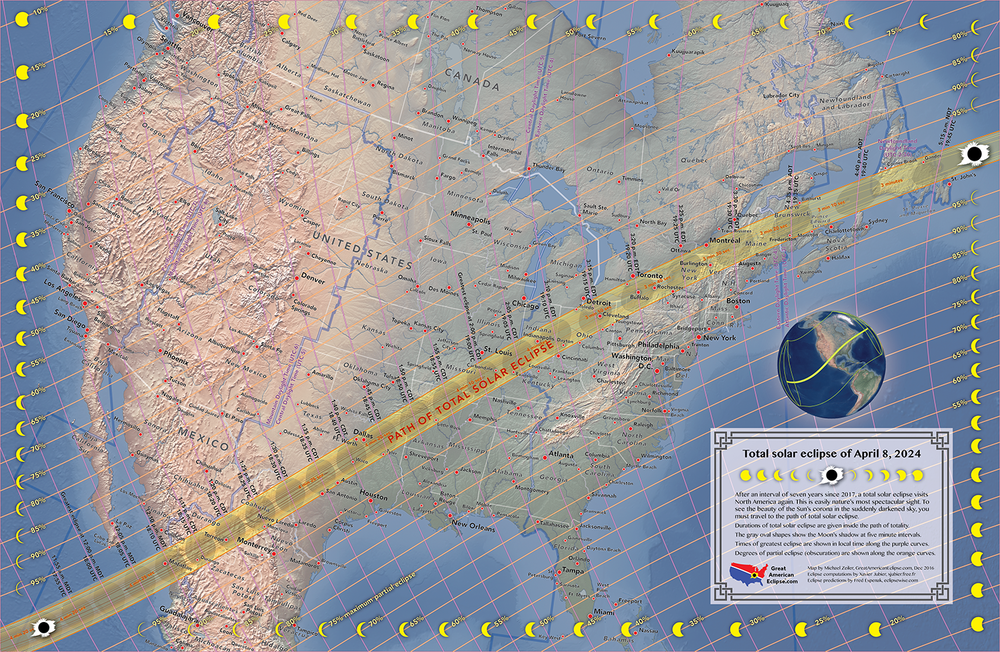March 19, 2024 – For most of us, this April 8th will provide an opportunity to be front and center of what may be a once-in-a-lifetime event. A total solar eclipse is a rare event, recurring somewhere on Earth every 18 months on average. It is estimated to recur at any given location only every 360–410 years on average. That data makes Sulphur Springs a very rare place for a very rare occurence as our tiny town sits in the very center of the path allowing for even longer eclipse time. The sun will be completely covered by the moon for a total of four minutes and 21 seconds which is very near the longest amount of total darkness on the eclipse path. A location in Mexico tops the list at 4:28, but nearby Dallas, which is outside the centerline gets only 3:51 of total darkness.

As we anticipate our total blackout of the Sun being eclipsed by the Moon, you should know that it won’t actually be as dark as the middle of the night, but similar to civil twilight as the sun’s rays fight to shine around the moon’s shadow. Yes, your dusk-to-dawn lights will activate and your outdoor animals will get confused as they think night approaches, but rest assured four minutes later the sun will emerge and the day will quickly brighten back to normal.
The total duration of the eclipse beginning when the first edge of the moon begins to block the sun until the last edge finally uncovers the sun will take 2 hours and 40 minutes. For the majority of that time, there should be only a slight noticeable difference in brightness but as full coverage approaches the sky gets darker quickly, a halo of sunlight appears around the moon (for four minutes and 21 seconds here) and then as the sun begins to be revealed it will brighten quickly.
How does the much smaller moon block the much larger sun?
As the moon is approximately 400 times smaller than the sun, it also is about 400 times closer to the earth than the sun making for a perfect combination for the sun and the moon to appear the same size in the sky. Other planets in the solar system (Jupiter, Saturn, and Neptune) have much larger moons than Earth and are farther away from the Sun giving them a better chance of a total solar eclipse.







